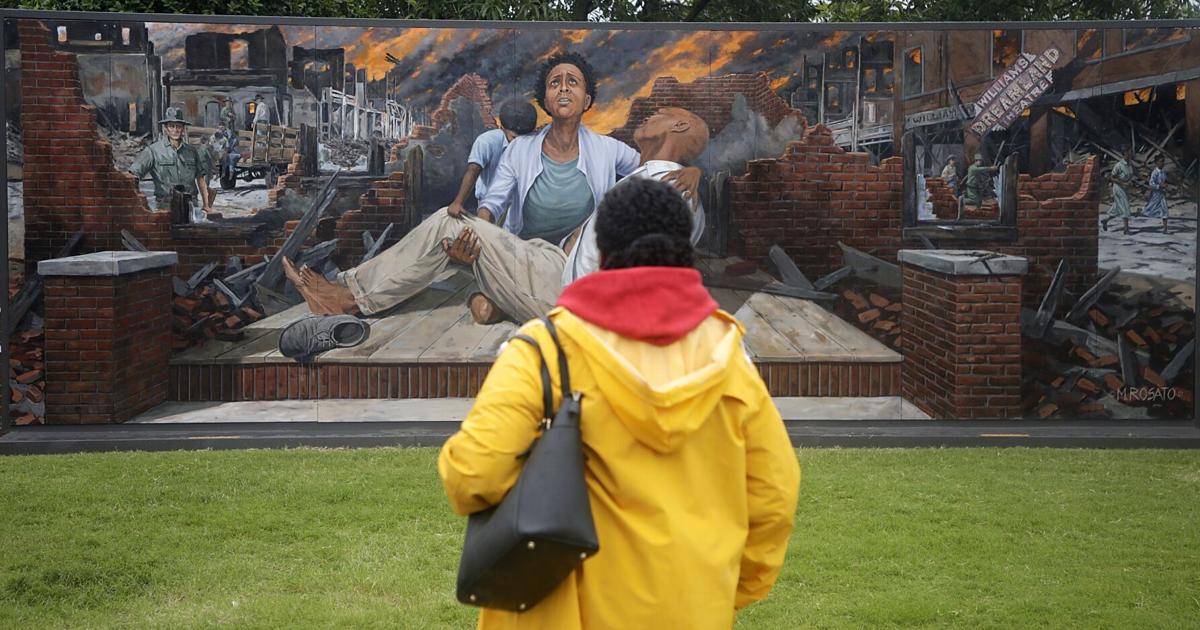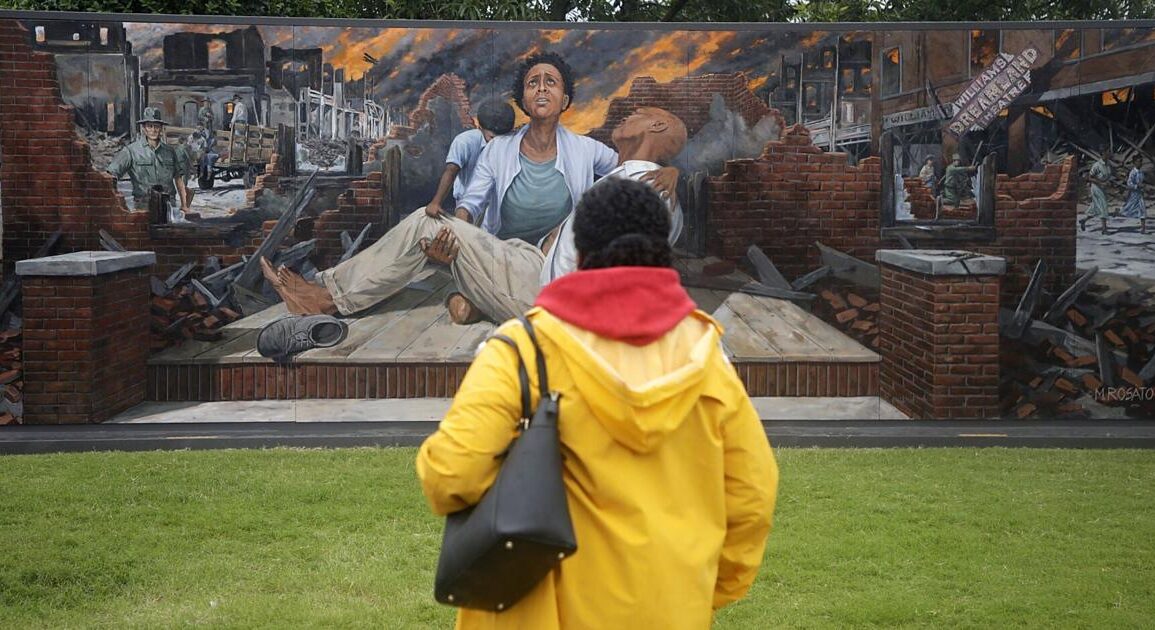
One hundred and three years after the 1921 Tulsa Race Massacre, the city on Friday will convene a commission to consider some form of reparations for those harmed by the destruction and violence that left dozens dead and more than 30 blocks of the historically Black Greenwood District in ashes.
The Beyond Apology Commission is set to meet at 1 p.m. Friday in the 10th Floor North Conference Room of City Hall, 175 E. Second St.
The meeting is open to the public.
The commission’s first order of business will be to produce a recommendation and implementation plan for a housing equity program.
“I am excited to begin the work of the Beyond Apology Commission and am confident our Commission will help lead the community down a path of humanity, healing and compassion as we continue to develop a plan for reparations in Tulsa,” Mayor G.T. Bynum said in a press release. “I am grateful for everyone who applied to be a part of this commission, and I encourage all Tulsans to participate in these historic efforts as they continue.”
People are also reading…
The commission is not expected to take up reparations in the form of direct cash payments. Bynum has said previously that he is opposed to direct payments but is open to establishing programs and policies that can help address the harm caused to the victims of the massacre and their descendants.
Friday’s historic meeting marks the culmination of more than three years of work by advocates for reparations, the City Council and the Mayor’s Office.
A resolution approved by city councilors in June 2021, commemorating the centennial of the massacre, pledged to create a community-led process to evaluate the “recommendations for reconciliation” in the state’s 2001 Tulsa Race Riot Commission report.
That process came to be known as Beyond Apology a series of community-led public meetings to share information about possible reparations programs and gather input from the public.
The Beyond Apology report, issued in January, recommended that the city of Tulsa create a government-sanctioned commission or task force “to establish and implement the terms of a reparations program” for descendants and survivors of the 1921 Tulsa Race Massacre.
District 1 City Councilor Vanessa Hall-Harper, who represents the Greenwood District, said she was grateful “to finally see the city of Tulsa establish a government-sanctioned commission that will work to establish and implement the terms of a reparations program.”
“This work will be uncomfortable for Tulsans, but we have to be diligent, and we have to be unapologetic when it comes to this type of work,” Hall-Harper said.
The May 31-June 1, 1921, attack on Tulsa’s Greenwood District — then home to one of the country’s most prosperous Black communities and Black Wall Street — destroyed 35 square blocks and left dozens of people dead. Some have estimated the number of dead to be in the hundreds.
The Tulsa World is where your story lives.
The Tulsa World newsroom is committed to covering this community with curiosity, tenacity and depth. Our passion for telling the story of Tulsa remains unwavering. Because your story is our story. Thank you to our subscribers who support local journalism. Join them with limited-time offers at tulsaworld.com/story.


